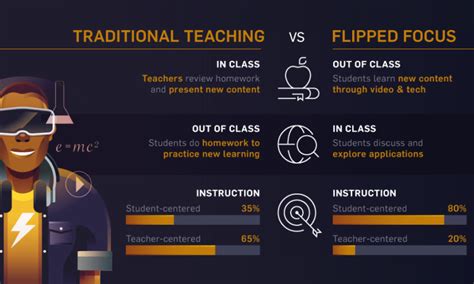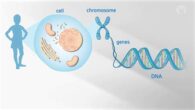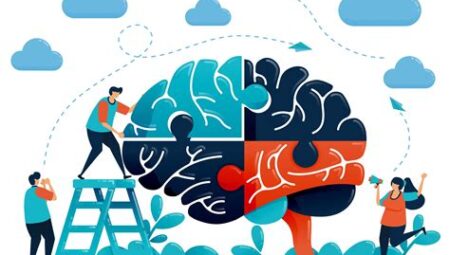Education plays a crucial role in shaping the future of individuals and society as a whole. From early childhood education to specialized teaching methods, the field of education encompasses a wide range of topics that have a lasting impact on the world. In this blog post, we will delve into the various aspects of education and explore its significance in our lives. We will discuss the role of technology in modern classrooms, the importance of early childhood education, and the empowerment of students through life skills education. Additionally, we will address the challenges in special education, the issue of social inequality in education, and the power of mentorship in shaping future generations. Join us as we explore the diverse and dynamic field of education, and learn how it is instrumental in creating holistic learning environments for student success.
Table of Contents
The Impact of Education on Society
Education plays a crucial role in shaping the dynamics of a society. It has the power to transform individuals and communities, contributing to social progress and economic development. Through education, individuals gain the knowledge, skills, and values that are essential for personal and collective growth. As a result, educated citizens are better equipped to contribute positively to their communities and play an active role in addressing social challenges.
Furthermore, education has the potential to promote equity and inclusivity within a society. By providing equal access to quality education for all individuals, regardless of their backgrounds, education can help bridge the gap between different social groups and promote a more cohesive and harmonious society. Through education, individuals from marginalized communities can empower themselves and work towards creating a more just and equitable world.
Moreover, the impact of education extends beyond the boundaries of a society and has global implications. A well-educated workforce is essential for driving economic growth and innovation, thereby contributing to the overall progress of the global economy. Additionally, educated individuals are more likely to be aware of global issues and engage in activities that promote sustainability and environmental conservation, thus contributing to the wellbeing of the planet as a whole.
In conclusion, the impact of education on society is profound and far-reaching. It has the power to create positive change at the individual, community, and global levels, ultimately contributing to a more prosperous, equitable, and sustainable world.
Exploring Different Teaching Methods
When it comes to education, there is no one-size-fits-all approach. Different teaching methods can have a significant impact on how students learn and retain information. Traditional teaching methods, such as lectures and textbook-based learning, have long been the cornerstone of education. However, there is a growing recognition of the need for innovative teaching methods that cater to diverse learning styles and abilities.
One approach that has gained traction in recent years is project-based learning, where students work on real-world projects that require critical thinking and problem-solving skills. This method not only helps students develop a deeper understanding of the material but also fosters collaboration and teamwork. Another alternative teaching method is flipped classrooms, where students learn new concepts at home through online videos and then come to class to engage in discussions and problem-solving activities.
Furthermore, experiential learning methods, such as internships and apprenticeships, give students hands-on experience in their field of study, bridging the gap between theory and practice. These methods not only enhance students’ understanding of the subject matter but also prepare them for the workforce. Additionally, personalized learning approaches, which utilize technology to tailor education to individual student needs, have shown promise in addressing the diverse learning needs of students.
As educators continue to explore different teaching methods, it is crucial to consider the impact of these approaches on student engagement and academic achievement. By embracing a variety of teaching methods, educators can create dynamic and inclusive learning environments that promote lifelong learning and success.
The Role of Technology in Education
Technology has become an integral part of modern education. From online learning platforms to interactive whiteboards, technology has revolutionized the way students learn and teachers teach. With the proliferation of smartphones and tablets, students have access to a wealth of information at their fingertips. This has opened up new opportunities for personalized learning and has made education more accessible to students from diverse backgrounds.
Furthermore, technology has allowed educators to incorporate multimedia elements into their lessons, making learning more engaging and interactive. Tools such as virtual reality and augmented reality have also enhanced the classroom experience, allowing students to explore subjects in a more immersive way.
In addition, technology has enabled teachers to track students’ progress more effectively, allowing for targeted interventions and personalized support. The use of educational apps and online platforms also provides a more flexible and adaptive learning environment, catering to students’ individual learning styles and needs.
Overall, the role of technology in education is undeniable. It has transformed the way knowledge is imparted and acquired, making learning more dynamic, interactive, and accessible to all.
Understanding the Importance of Early Childhood Education
Early childhood education plays a crucial role in the development of a child. The early years of a child’s life are crucial for cognitive, emotional, and social development. This is the time when a child’s brain is rapidly developing, and the experiences they have during this period have a lasting impact on their future. By providing quality education and care during these formative years, we can set the stage for a child’s success in school and in life.
It is during early childhood that children learn basic skills that are essential for their future academic and social success. This is the time when they learn to communicate, to interact with others, and to develop important social and emotional skills. Early childhood education helps to lay the foundation for future learning, and it can have a lifelong impact on a child’s ability to succeed.
Research has shown that children who receive high-quality early childhood education are more likely to do well in school, graduate from high school, and pursue higher education. They are also less likely to be involved in crime, and they have better employment and earnings later in life. Early childhood education has the power to break the cycle of poverty and to give children from disadvantaged backgrounds a better chance at success.
Investing in early childhood education is an investment in the future. By providing children with a strong foundation in their early years, we can help to ensure that they have the skills and knowledge they need to succeed in school and beyond. Early childhood education is not just important for the individual child, but for society as a whole. It has the power to shape the future of our communities and our world.
Empowering Students through Life Skills Education
Empowering students through life skills education is an essential aspect of preparing them for the challenges they will face in the real world. By equipping students with practical skills such as communication, decision-making, problem-solving, and financial literacy, educators can ensure that they are well-prepared to navigate the complexities of adult life.
Integrating life skills education into the curriculum allows students to develop a sense of independence and self-reliance, which are crucial for their personal and professional growth. These skills not only enhance their academic performance but also pave the way for their success in various aspects of life beyond the classroom.
Moreover, life skills education empowers students to make informed choices and take responsibility for their actions. By fostering a sense of accountability and resilience, educators can help students develop the confidence to face challenges and overcome obstacles in their personal and professional lives.
Through life skills education, students can learn to adapt to different situations, manage their emotions, and build meaningful relationships. These skills not only contribute to their overall well-being but also prepare them to become productive members of society.
Promoting Creativity and Critical Thinking in Education
Education is more than just imparting knowledge; it is about encouraging creativity and fostering critical thinking skills in students. By promoting creativity and critical thinking in education, we are empowering the next generation to think outside the box and approach problems in innovative ways.
One way to promote creativity in education is to provide students with opportunities for project-based learning. This approach allows students to delve into real-world problems and come up with creative solutions, rather than simply regurgitating information from a textbook.
Another important aspect of promoting creativity and critical thinking in education is to encourage interdisciplinary learning. By integrating different subjects, students are able to see the interconnectedness of knowledge and develop a holistic understanding of the world around them.
Furthermore, it is essential to create a positive and inclusive classroom environment that encourages students to take risks and explore new ideas. When students feel supported and valued, they are more likely to engage in creative and critical thinking processes.
Addressing Challenges in Special Education
When it comes to special education, there are several challenges that need to be addressed in order to provide the best possible learning environment for students with diverse needs. One of the main challenges is the lack of resources and funding for special education programs. Many schools struggle to provide the necessary support and accommodations for students with disabilities, leading to an inequitable educational experience. Additionally, there is a shortage of qualified special education teachers, making it difficult to meet the individual needs of each student.
Another challenge in special education is the stigmatization and lack of inclusion of students with disabilities. This creates a barrier to their participation in the general education curriculum and social activities, leading to feelings of isolation and low self-esteem. It is essential to address these social and cultural challenges in order to create an inclusive and supportive environment for all students.
Furthermore, the complexity of individual disabilities and the diverse learning needs of students require a personalized and flexible approach to education. This can be challenging to implement within the existing educational framework, which often prioritizes standardized testing and one-size-fits-all teaching methods. It is crucial to develop and promote teaching strategies that cater to the diverse learning styles and needs of students with disabilities, in order to ensure their academic and personal growth.
In addition, there is a need for better collaboration and communication between special education teachers, general education teachers, and other professionals involved in the student’s education. This interdisciplinary approach is essential for developing comprehensive education plans and providing the necessary support for students with disabilities. Addressing these challenges in special education is crucial in creating a more inclusive, equitable, and effective educational system for all students.
Bridging the Gap: Education and Social Inequality
Education is a powerful tool that has the potential to bridge the gap of social inequality. By providing equal access to quality education, regardless of socio-economic status, we can create a more equitable society. Addressing the disparities in education can help to level the playing field and give every individual the opportunity to reach their full potential.
One way to bridge the gap between education and social inequality is through providing support and resources to underserved communities. This could include improving schools in low-income areas, providing scholarships and financial aid for higher education, and offering mentorship programs for students who may not have access to support at home.
Another important aspect of bridging the gap is by promoting diversity and inclusion within the education system. It’s important for students to see themselves represented in their curriculum and for educators to create a welcoming and inclusive environment for all students, regardless of their background.
Ultimately, by addressing the challenges of social inequality within the education system, we can empower individuals to break the cycle of poverty and create a more just and equal society for future generations.
The Power of Mentorship in Shaping Future Generations
Mentorship plays a crucial role in shaping the future generations by providing guidance, support, and inspiration to young individuals. A mentor is someone who shares their knowledge, experiences, and wisdom with a mentee, helping them navigate through challenges and achieve their full potential. The impact of mentorship goes beyond the personal development of the mentee, as it also contributes to the overall growth and success of society.
Strong mentorship relationships have the power to empower and motivate young people to pursue their goals and dreams, instilling in them a sense of confidence and self-belief. By serving as role models, mentors can influence the values, attitudes, and aspirations of the next generation, shaping them into responsible, empathetic, and driven individuals who are capable of making positive contributions to their communities.
Furthermore, mentorship fosters a sense of connection and belonging, creating a supportive network that enables mentees to access opportunities, resources, and guidance that they may not have otherwise encountered. This network can open doors to new experiences, career pathways, and personal growth, equipping young people with the skills and knowledge they need to thrive in an ever-changing world.
It is evident that mentorship has the potential to make a profound impact on the lives of future generations, providing them with the guidance and support they need to overcome obstacles, pursue their passions, and become the leaders of tomorrow. By recognizing and harnessing the power of mentorship, we can cultivate a brighter, more promising future for the upcoming generations.
Creating Holistic Learning Environments for Student Success
Creating holistic learning environments for student success involves providing a well-rounded education that nurtures not only academic skills, but also social, emotional, and physical development. This approach to education recognizes the interconnectedness of all aspects of a student’s well-being and aims to address their needs in a comprehensive way.
One key aspect of creating holistic learning environments is the integration of life skills education into the curriculum. Teaching students important life skills such as communication, problem-solving, and emotional intelligence equips them with the tools they need to navigate the challenges of the real world and thrive in their personal and professional lives.
Furthermore, promoting creativity and critical thinking in education is essential for fostering holistic development. Encouraging students to think outside the box, express themselves creatively, and analyze information critically helps them develop a well-rounded perspective and adaptability to different situations.
Finally, addressing challenges in special education is a critical component of creating holistic learning environments. Ensuring that students with diverse learning needs are supported and included in the educational experience promotes a sense of belonging and equality, contributing to the overall success of all students.






